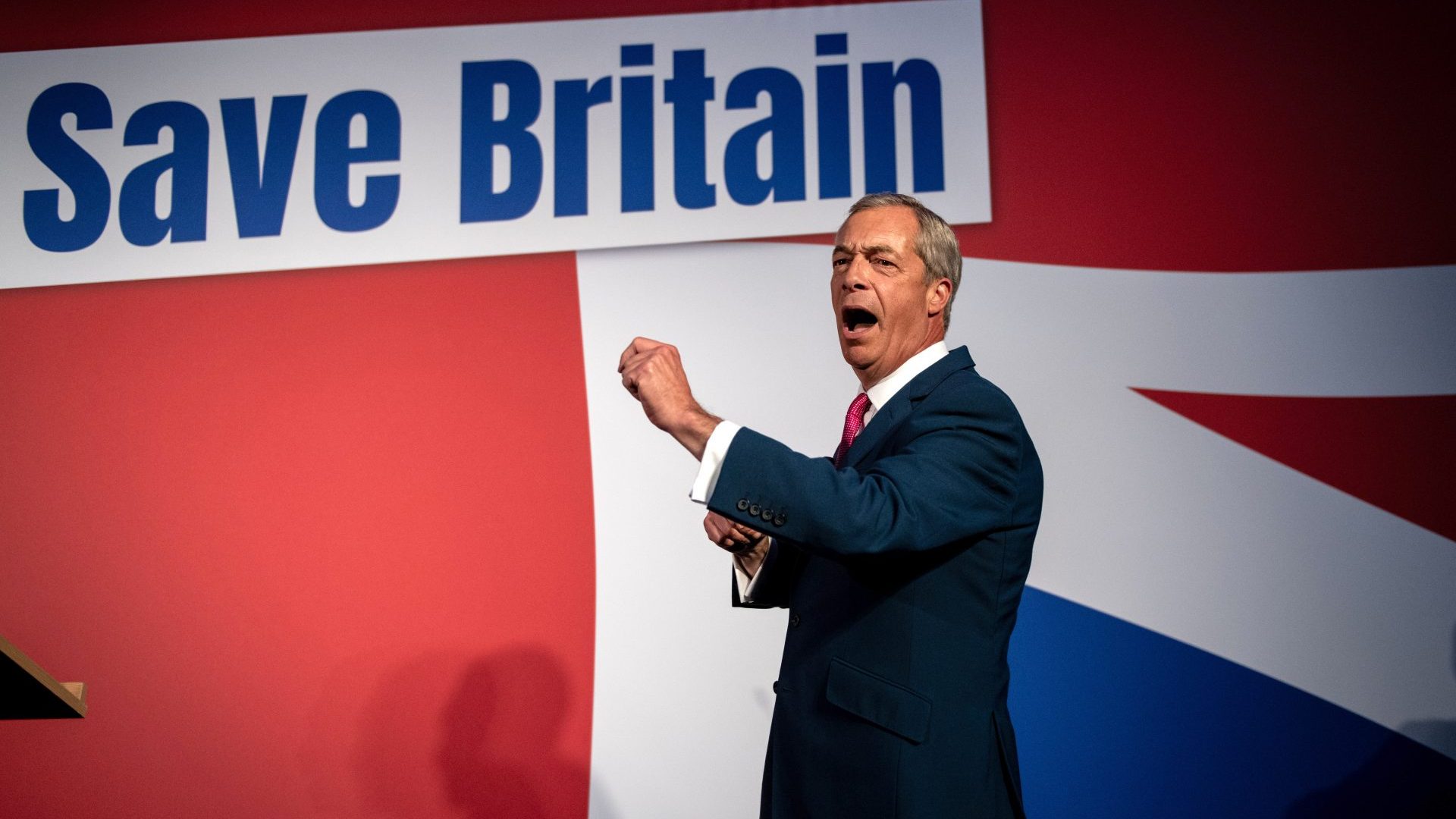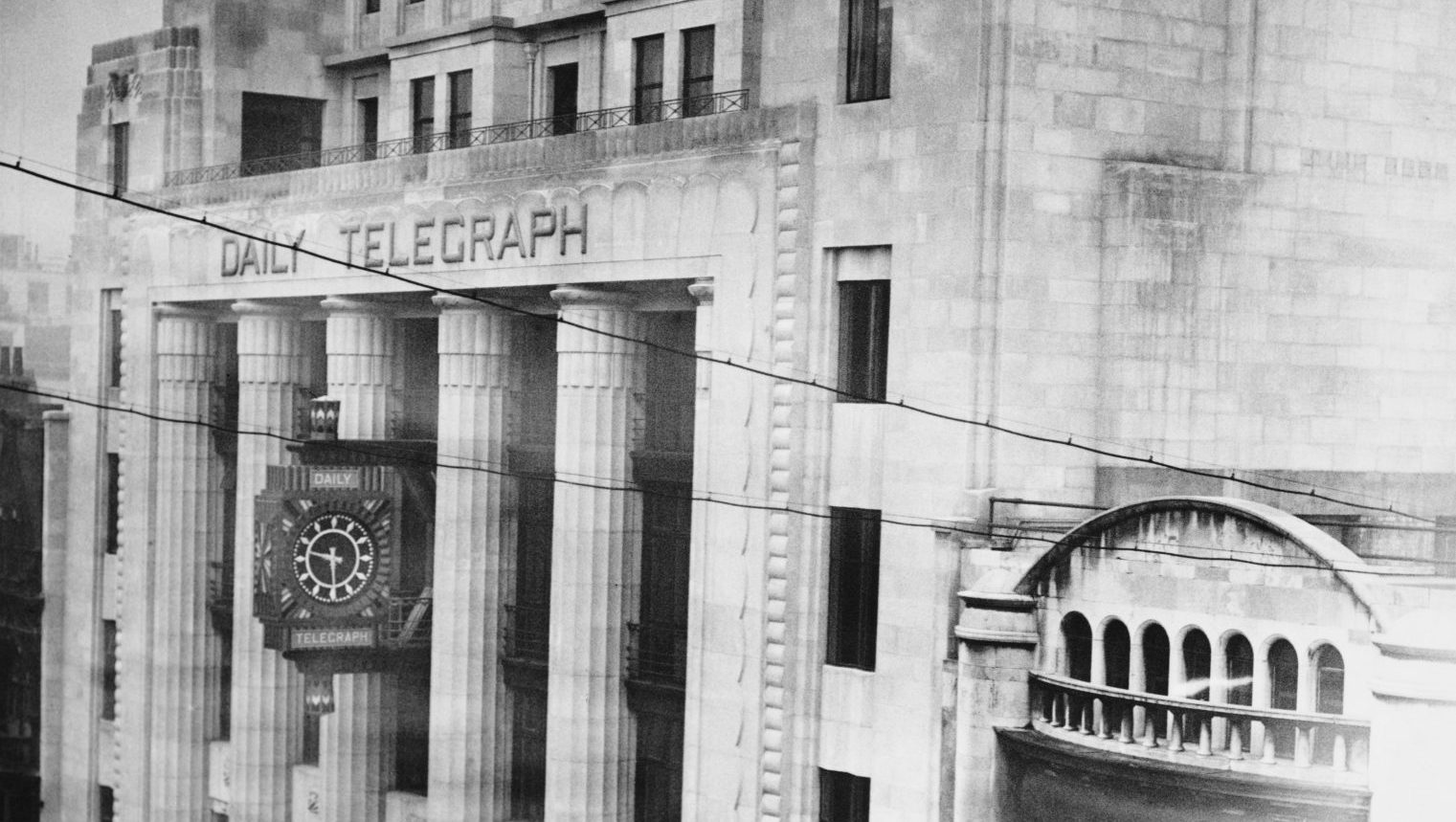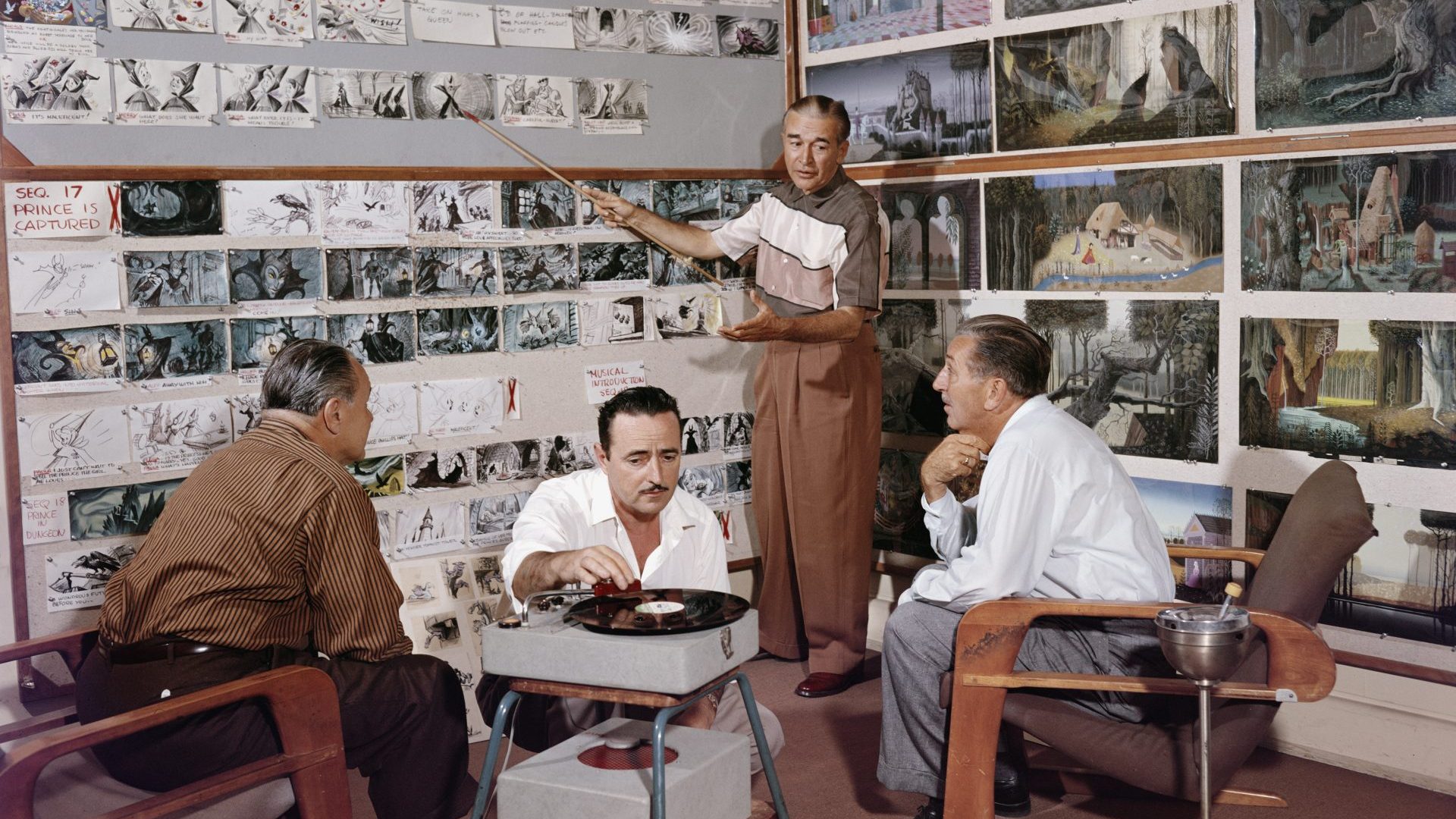If you want a picture of the Conservative Party’s future, imagine Nigel Farage and Priti Patel stamping on a disco dance floor – for ever.
The horrendous image of the GB News host and former home secretary getting on down to Frankie Valli’s Can’t Take My Eyes Off You at last week’s Tory conference in Manchester is certainly hard to scour from the memory. It also captured the spirit of the gathering much more accurately than Rishi Sunak’s speech. The prime minister might have been the notional host of the get-together; but Farage was its life and soul.
So much so, in fact, that Sunak felt obliged to signal that he would be open to the former leader of Ukip and the Brexit Party rejoining the Conservatives, from whose ranks he resigned in 1992 over Maastricht. Bear in mind that, only four years ago, as Farage sought an electoral pact with the Tories, Downing Street sources were briefing that he was not a “fit and proper person”.
For now, he says that he will be sticking with Reform UK (as the Brexit Party was rebranded in January 2021), which held its own conference in London on Saturday. In last weekend’s Sunday Telegraph he declared that he was “getting bored” with Sunak’s promises to “stop the boats”; that Brexit would not be complete until the UK left the European Convention on Human Rights; and that “the current level of legal net migration” (my italics) was “the bigger elephant in the room”.
Yet in the same article, he teased “a realignment of the centre right in British politics”. What might that mean? “I wouldn’t rule out joining the Conservative Party, if it rediscovers what it is after defeat,” he told the Sunday Times, adding that “once they’ve lost the election, then I think my influence over where they go might be rather bigger”.
It has long been Farage’s trick to wear the jester’s mask, ensuring that his opponents underestimate him, leaving him free to calculate his next manoeuvres. Recent history – his ability to make the weather on Brexit, net zero, culture wars, debanking – suggests it is worth taking seriously what he says.
George Osborne certainly does. In last week’s episode of the podcast he hosts with Ed Balls, the former chancellor went this far: “It’s not inconceivable that if the Conservative Party lost the general election and if Nigel Farage had rejoined as a Tory Party member… then he could be a potential leader.”
What Osborne was correctly acknowledging is the central fact of contemporary politics; namely, the need to adopt an increasingly imaginative and nimble approach to the frontiers of the conceivable. So let’s try a thought experiment.
Sunak, as expected, leads the Conservatives to a heavy defeat. Keir Starmer enjoys a brief honeymoon as the electorate celebrates the end of 14 years of Tory rule. But the cost of living remains high, interest rates do not come down quickly enough, and Brexit strangles economic growth.
The public becomes increasingly responsive to populist messaging. Xenophobia is compounded by a growing fear of AI and job-destroying automation. Farage’s base sees its world being overrun by migrants and robots.
Meanwhile, the rump of the Conservative Party continues on its rightward journey and chooses either Suella Braverman or Kemi Badenoch as leader. After Reform UK’s dismal election performance, Farage rejoins the Tories, stands in a snap by-election and finally becomes an MP (eighth time lucky).
Donald Trump’s re-election to the US presidency in November 2024 has hugely enhanced his influence. The two men have been friends for years, campaigning and conspiring. Farage was the first British politician Trump met after his election in 2016. So it is no surprise when he is fast-tracked into the shadow cabinet.
Trump has axed US support for Ukraine and is seeking to end the conflict fast. Most Tories are queasy about Farage’s longstanding claim that Vladimir Putin was provoked into invasion by Nato. But he is one of the very few British public figures still held in any regard in the Kremlin. Heeded in both Moscow and Washington, Farage is suddenly one of the most powerful politicians in the west.
Sunak’s successor as Tory leader – whoever that may be – is fast eclipsed and, like Iain Duncan Smith in 2003, stands down after two years. In the parliamentary rounds of the subsequent contest, Farage only squeaks into the final two (his fellow MPs are predictably wary of his sudden rise). But it makes no difference, because he is overwhelmingly elected by Conservative members, completing the party’s transformation into MAGA UK. As Starmer struggles, the economy falters and nationalism prospers, it suddenly becomes feasible that Farage might just make it all the way to No 10.
How? More than any British politician of our time, he understands that power has shifted definitively from institutions to networks, from the old-fashioned swing of the pendulum to sudden transfers of political energy. As Philip N Howard argues in his important book Pax Technica, politics is best understood now “as a system of relationships between and among people and devices”.
Even before broadband, social media and smartphones changed the world, Farage grasped all this intuitively. He sees that organisations come and go (the Brexit Party won the UK’s European Parliament elections in May 2019, but was a busted flush by December). He is unafraid of the extraordinary turbulence of contemporary politics, and of dramatic setbacks that would once have been fatal to a career.
He sees that particular electoral events are less important than subterranean shifts. He has a gift for spotting and exploiting the elusive patterns that lurk in what appears to be chaos.
Could he become prime minister? Do not confuse your horror at such a prospect with an objective evaluation of its probability. It is now – shockingly – an outcome that is comfortably within the realm of the plausible.
I am reminded of that old XTC hit, Making Plans for Nigel. Well: are you? Because he is certainly making plans for you.




